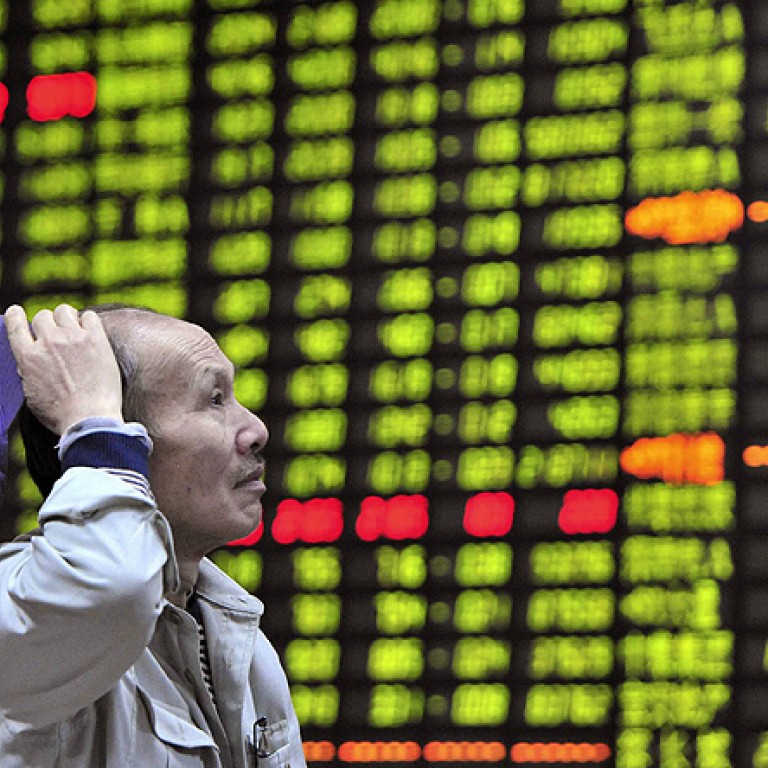
China's securities regulator must step back from the market
Hu Shuli says the eleventh-hour intervention to halt the Aosaikang listing shows where the problem lies and where action must be targeted
The new year was to have brought a new beginning for China's stock market. Instead, investors who were set to welcome the return of IPO action after a suspension of 14 months were disappointed by news on January 10 that Jiangsu Aosaikang Pharmaceutical was putting its anticipated initial public offering on hold.
The abrupt postponement has sparked questions about the regulator's reform agenda. Clearly, at a time when it is trying to clarify its own role vis-à-vis the market, the regulator has yet to master the art of timing. Xiao Gang, chairman of the China Securities Regulatory Commission, said at a work conference this month that reform would see a complete overhaul of the regulator's scope of oversight of the capital market. Its recent actions must be seen in light of this pledge.
Last November, the commission published new rules strengthening the market's role and transparency in the approval of IPOs; this sets the development of the market in the right direction. Yet, out of habit, it apparently could not resist interfering in the pricing of new shares and companies' fund-raising model, in an effort to moderate price fluctuations.
This is at odds with the agency's stated goal of reform, of course. No doubt such inconsistencies led in part to the Aosaikang debacle.
The drug-maker had planned to raise 4.05 billion yuan (HK$5.1 billion) from the market, after pricing the deal 21 per cent higher than the industry average. Of its proposed 55.47 million shares, nearly 80 per cent were old shares offered by its largest investor, sparking investor complaints of overpricing. This was the direct reason for the regulator's last-minute intervention.
However, Aosaikang broke no rules. In its own newly issued guidelines, the regulator called on major shareholders of companies on offer to release old shares in order to ease the demand for new stock. This measure is clearly unsound. A commission spokesperson admitted as much at a press conference when he said caps on share volumes were not entirely reasonable.
Indeed, such thinking is outdated. Strict management of a company's fund-raising is itself a legacy of a centrally planned economy. Thus, intervention into the IPO pricing and a company's fund-raising model goes against market principles and international practice.
It was especially damaging that Aosaikang had backtracked on the regulator's order. Without the anchor of market logic, it will be all too easy for future IPOs to fall into the trap of low prices. This will badly hinder market development.
Undeniably, the generally poor development of China's capital market is to blame. In the past, the snail's pace in vetting and approving an IPO application and the on-again-off-again nature of IPO launches have badly distorted the supply and demand of capital. As a result, price setting follows rules that are alien to a mature market, and IPO launches attract speculators eager to make a quick killing.
However, suppressing prices will do nothing to help the market or investors mature. On the contrary, it will only stimulate speculators' interest in new shares, exacerbate the imbalance between supply and demand, and encourage fraud and transfer of benefits.
Reform must begin and end with a clear understanding of the proper relationship between government and market.
This does not mean, however, that the regulator can abdicate its duties of oversight. In fact, it has to be doubly alert in attending to an immature, ill-disciplined market. All the more, it must learn to identify and address its key challenges, thereby improving its credibility.
First, it must stop controlling supply and allow listings to be normalised. This means it should continue to ease up on vetting an IPO and allow the market to set prices.
Second, it must strengthen its powers of oversight. Its current organisation restructure is not enough; it must seek more fundamental change than such "campaign-style" upgrades. In particular, it must seize the opportunity of an amendment to the securities law this year to fight for greater powers to discipline errant behaviour. With real bite, it will raise the costs of breaking the law.
Thirdly, it should announce measures as soon as possible to back up its pledge to enforce strict delisting regulations.
The regulator must send a clear message to the market. For instance, the fraud perpetrated by Wanfu Biotechnology, which came to light last year, must not be tolerated.
It must also crack down on those who release rumours and false information in an effort to manipulate share prices.
The regulator must keep faith with the market, and stick to its role as a watchdog. With the new wave of reform just started, it is vital that it learn the lesson of Aosaikang well.

